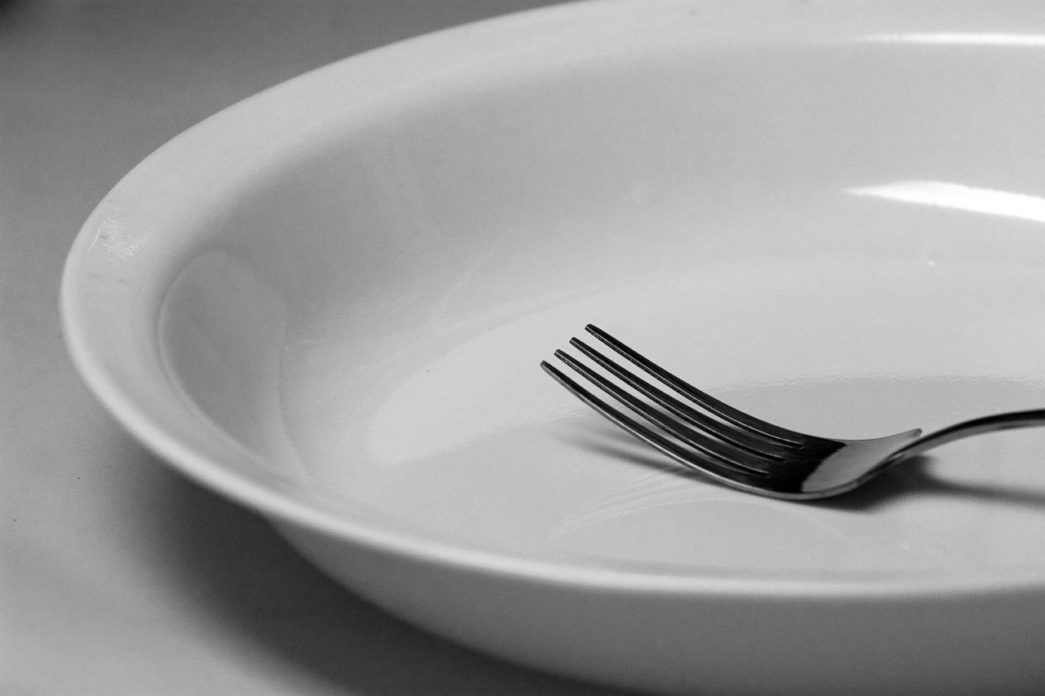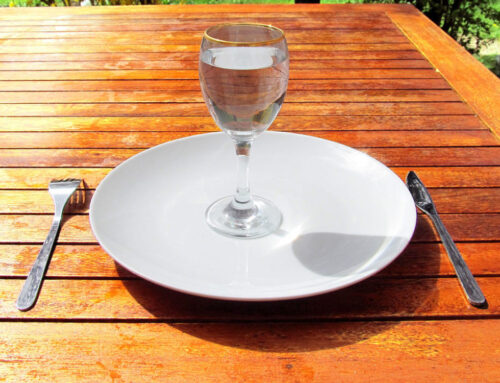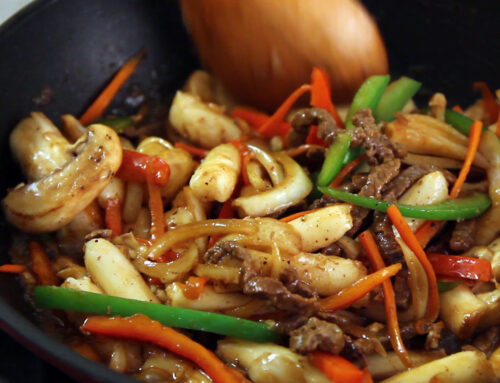Fasting
If the idea of fasting scares you, well, you are not alone. We are all naturally creatures that take comfort in the fed state and achieve a peaceful feeling from knowing that we have just gorged. Yet, when performed correctly, fasting can be one of the most powerful tools to put fat burning into overdrive. While I have gone to great lengths to convince you that you must avoid a condition of starvation alert, by suggesting fasting I am not contradicting myself. Remember that the fat gaining consequence of being in a temporary state of starvation alert only occurs at the night-time re-feeding. If one forgoes the night re-feeding, then one harnesses the power of fasting.
To put it another way, though avoiding starvation alert should generally rule nearly every day, on occasion, very short term and structured caloric deprivation has its place because it not only burns off body fat at hyper-speed, but it resets your metabolic ability to burn fat at a steadier state when you return to your regular eating. Fasting has been an important purification fixture of many religions and cultures throughout the history of man. Someone way back when realized the power of fasting. Some easterners still believe that fasting not only purifies the body, but it heightens the senses and makes one more aware of ones surroundings. To better understand the power of fasting, note the following three points:
* The body is in a constant state of what is called homeostasis (this means it fights against change).
* Burning off body fat challenges homeostasis.
* Fasting without an evening re-feed forces the body to immediately look to stored body fat as an energy source.
When in Rome
Fasting is perhaps the most powerful and ancient dietary method to burn fat quickly. It seems the Roman Empire ruled over most of the modern world for thousands of years and accomplished this on the backs of their legions of soldiers. These Roman warriors would periodically come upon periods of forced fasting and re-feeding simply due to the conquest at hand and the availability (or lack thereof) of food. This habitual fasting was followed by either no evening re-feeding or at most an evening re-feed, the content of which was mostly protein and water. It seemed to make them the smartest, strongest and most fearsome soldiers. Unlike sumo wrestlers who regularly live with daily starvation alert followed by uncontrolled evening re-feeding resulting in fat gain, the opposite way of the Roman warrior was at the core of each soldiers leanness and physical and mental fortitude.
Scientific research also suggests a longevity component to some degree of caloric deprivation. The overfed state, which nearly all Americans are used to, appears to cultivate premature illness and death.
Doing It
If I’ve sold you on the effectiveness of this important tool for fat loss, the real challenge then becomes how you overcome the fear and apply this tool. While you are sticking to my regular rules of meal cadence and macronutrient intake for body fat loss, you can periodically use short-term fasts to realize the massive fat burning advantage of brief bouts of intense caloric restriction without an evening re-feed. Again, don’t confuse this with going into starvation alert. The difference is that when you are in starvation alert. Recall starvation alert is a condition fostered by a lifestyle of daily food deprivation and heavy night-time re-feeding. This builds fat and is in sharp contrast to proper fasting.
Actually my version of fasting is not a true complete deprivation of all sustenance. My favorite method is what I call a “structured fast”. By that I mean that I like a small early morning pure protein intake of either eggs or meat source prior to the all-on fast. This takes the edge off the first hit of hunger and I actually believe helps the fat burning process because it gives you just enough get-up-and-go to not sit around thinking off food. Of course, the more active you are, the more calories you burn. Without the morning feed, we have found in clinic that fasting compliance tends to be much lower because of the first hit of mid morning hunger drives a huge and almost insurmountable temptation to eat. Also a small amount of morning protein gets you off to work and about your day. It not only counteracts this effect by delaying and softening the first hit, it also results in a higher degree of body fat loss because of the higher level of physical exertion the body is tricked into pursuing.
Since re-feeding obviously does occur at night, when exactly do you re-feed? The next morning after the fast is when it happens. That’s because you will be burning fat while you sleep! It’s a rare state of being, but when you wake up the next day having survived, look at how flat your belly is and check out the scale. The results are astounding and well worth the temporary discomfort. All that said, pay attention to the following caveats:
* Don’t completely deprive your body of all calories. Instead, have one early morning protein meal around 7:00am-8:00am.
* Don’t re-feed until the next morning. At that point, get right back to your regular meal plan with a big morning meal. Also note that you must immediately and vigorously re-feed the morning the fast is over. Do not wait until later in the day to re-introduce food.
* Perform the structured fast on schedule every 10th day, but no more frequently then every seven days.






